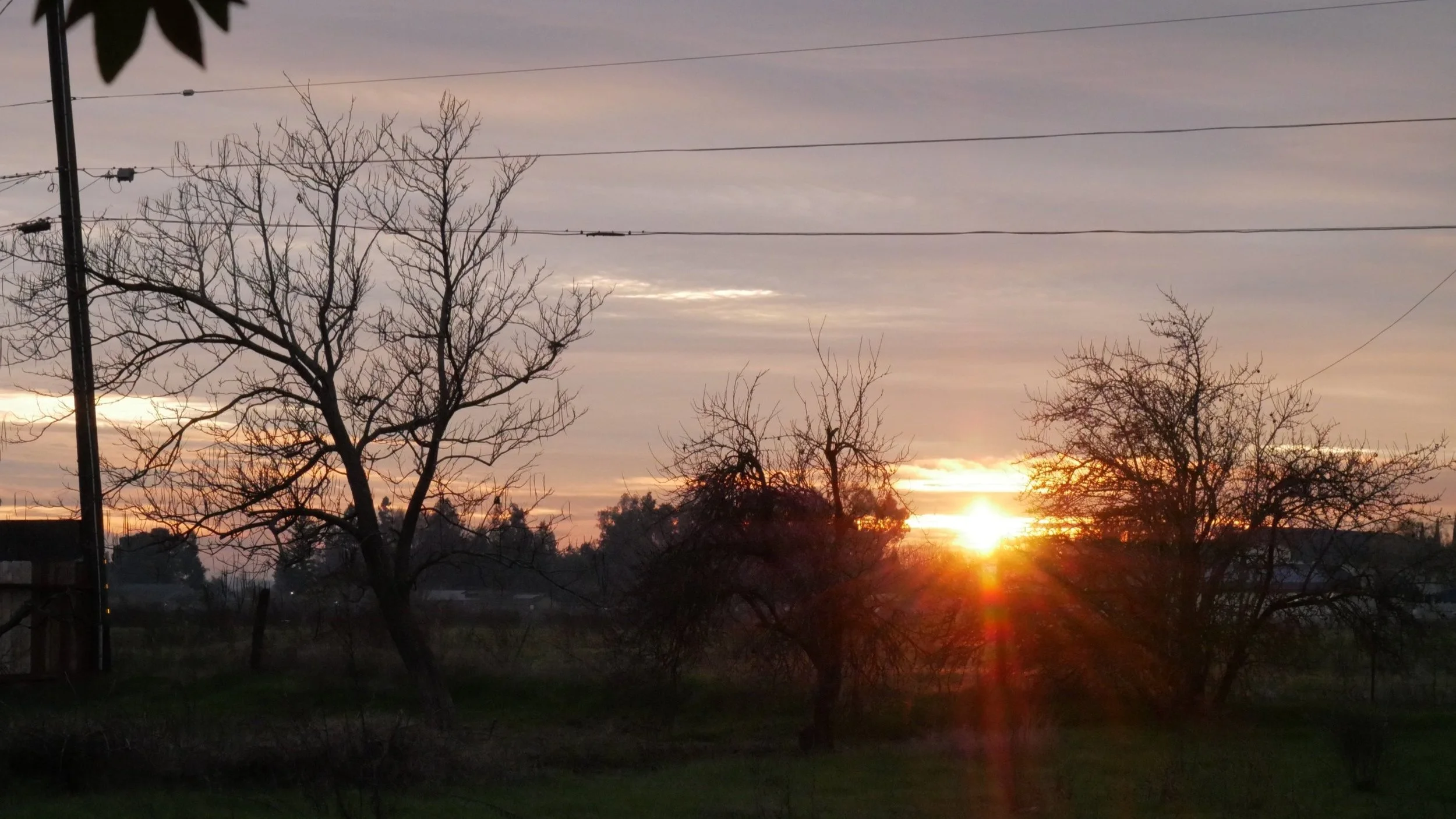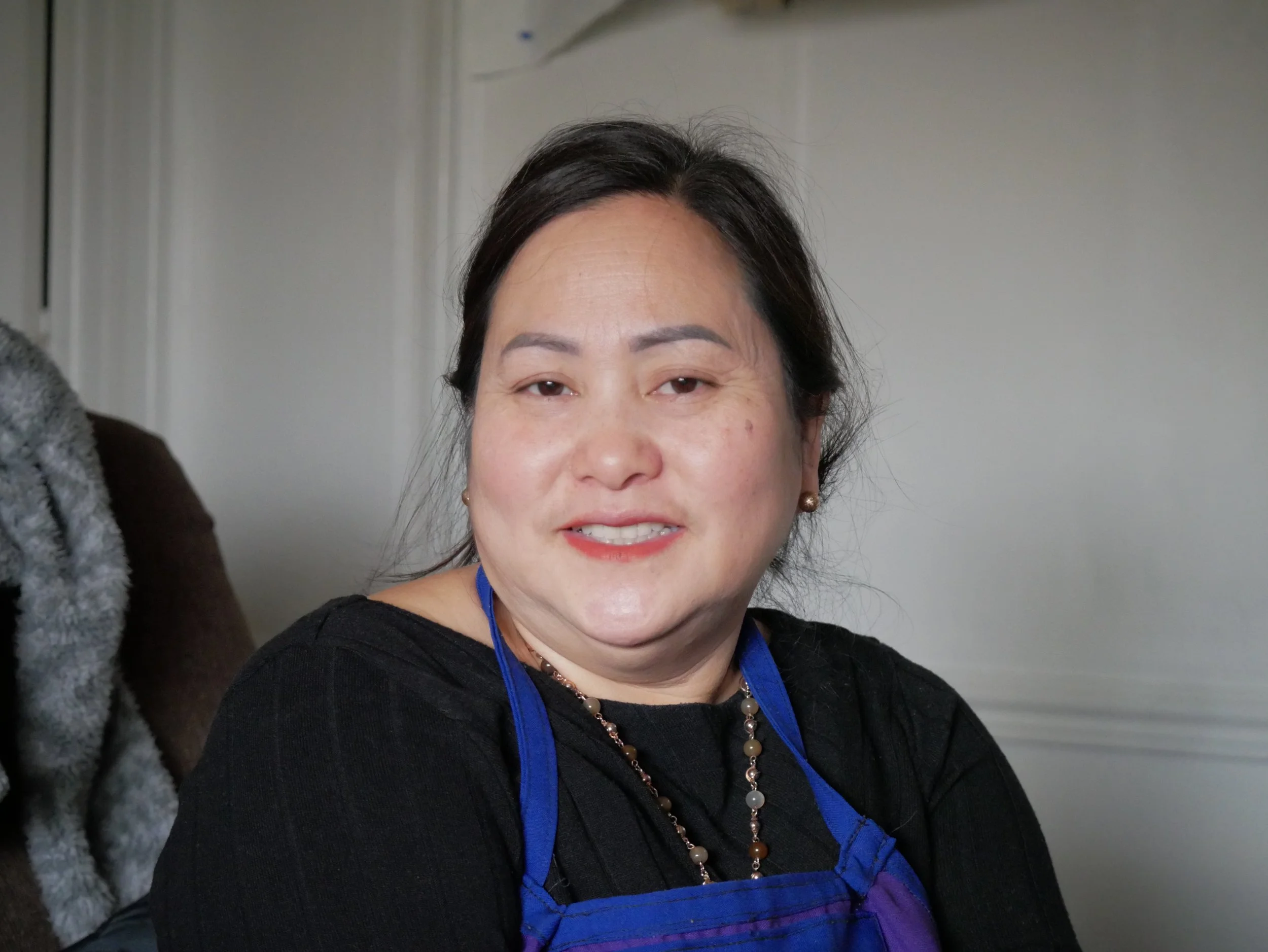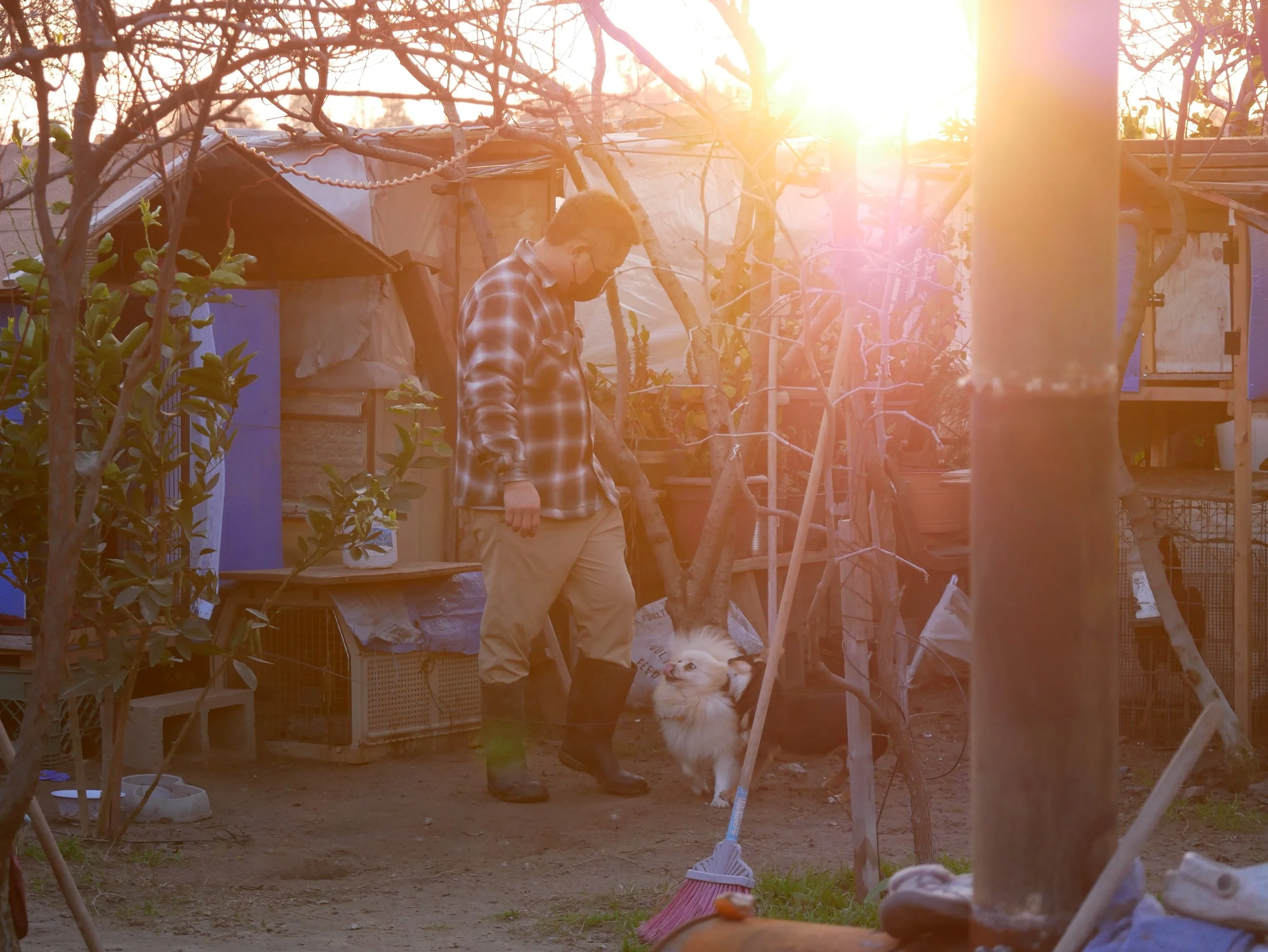Niam thiab Txiv Lub Qab Vag Tsib Taug (My Parent’s Yard)
I’ve always wondered why my parents would spend countless hours cleaning their yard for it to look the same at the end of the day. They itch to work and always seem to be in such a hurry to fix or rebuild things. The time they spend with their animals probably exceeds the time they spend with the family. Though I get a little jealous sometimes, I am reminded that I can not offer them any help other than simple chores around the house as I have my personal life to tend to. I always felt inclined to ask them to come inside rather than stay outside for such a long period mostly because of the guilt I felt.
Sunset view from home
I was a busy university student who didn’t return home until the sun had gone down. Yet, whenever I came home, they were either still in their yard or they were fast asleep. It made me feel guilty and anxious that I wasn’t able to provide the type of help a “traditional hmong daughter” could provide. It didn’t help that I was an argumentative daughter growing up or what one would call, a “ntxhais cav ncauj.” This didn’t mean I didn’t love them. We had lots of differences and it was difficult to compromise on many topics. Even so, the guilt was overwhelming and it troubled me mentally, especially during my college years. And it still does as I continue living this Hmong-American lifestyle.
“How much longer do I have with them?” was a question I asked myself very often, more so during my college years. I was conditioned to think that I had very little time with them. I thought this because all of my older siblings including my older sister, who I remember had despised the idea of love so much, had gotten married by the time they were 22 or 23. As I was already 20, and all my relationships had failed, I still believed I would find someone who’d be serious enough to take me away from my parents. As a Hmong daughter, when you marry into another family, you become their “dab” or their spirit; your spirit is bonded with your husband’s side of the family. In traditional times, marriage made it impossible for Hmong daughters to return and live with their immediate families like she did when she was still a little girl.
My hardworking mother.
Her American name is May Yang. Her birth name is Maiv Huas Muas (Mai Houa Moua).
She will be 49 years old on May 4, 2024.
She was born in Laos.
She is the oldest daughter of four brothers and four sisters.
She got married when she was only 16 years old.
However, I’ve grown from relationships and am currently in the stage of my life where my career and my family is top priority. Now, I have a different reason to feel my time is running out. So, I began to wonder who my parents are.
What were they like when they were little?
What sort of friends did they have?
What hobbies did they indulge in?
What conversations did they enjoy?
What were they like as teenagers?
What sort of life-altering experiences did they have growing up?
These questions clouded my mind, making me curious about my parents. I wanted to befriend them and understand why we often clashed heads. During this process of getting to know my parents again, I realized that I actually never listened to their words and instructions before. Though, I also understood what caused this disconnect. I was often angry because of their personal judgments of me. They often told me what I could or couldn’t do as a girl as opposed to my brothers, who were boys. This led me to believe that they never actually truly believed in me and this made our simple conversations turn into arguments almost every time. With them not understanding my struggles of self regulation and with me not understanding their love expression, our tone of voices and choices of words often came out spiteful. My parents and I struggled to love one another.
My hardworking father.
His American name is Cha Yang. His birth name is Tsab Yaj.
He will be 52 years old on August 15th, 2024.
He was born in Laos.
He is the youngest son of his family.
He got married when he was only 19 years old.
At some point, I realized that my parents never formally had a “normal” life. Their childhood was war-coded, their teenage years were all about raising a family, and adulthood was about surviving in the USA. Imagine. Can you imagine what that feels like? I can’t. Because despite all the disagreement and struggles to communicate, my parents have given me a life of comfort to the best of their ability. I had to understand that their ideas and opinions stem from how they were raised and how mine were developed from living as an American. Neither opinions were invalid because they were both equally important to be a family.
My parent’s yard serves as their place to feel safe. They’re used to it. Their chicken coops, their dog houses, their animals, their garden, their shed, their patio, everything. If it’s not there, they won’t feel at home. I realized this when one of my brothers was moving out with his family and he asked my parents to go live with him at his new home. My parents turned it down. They mentioned that they were more comfortable with having their own space to raise their plants and animals. Although our home is what one would call a “tsev qhob noom” or “candy house,” my parents chose it.
Hear the sound of the wind, the birds, and the chickens from my parent’s yard.
Their yard, I feel, is the place they’ve chosen to bury their feelings. In it, they bury their feelings of loneliness, yearning, desire, regret, and grief. And who knows what else. Their lives went by them like the daylight. Born into war, raised to survive, built a family from nothing, and all of a sudden, they have only three decades of their lives left to truly enjoy. I asked my parents what they wanted to be when they were kids. My father said he wanted to be a doctor or a teacher, someone of great knowledge or skill to help others. My mother said she wanted to be an upstanding politician who could help her community escape poverty. Despite America being the land of opportunities, the language barrier terrified them and their family tied them down. Their goals never happened and they both remained working class citizens, till this day. Everyday, their yard is the only thing that grounds them.
Listen, reader. Our parents may not have been the greatest, and I’m not asking you to take on the role of succeeding your ancestors or bloodline. However, you must be strong for we are all they have and you must be patient for they are all we have. Love yourself and forgive your parents. Sometimes, the only real friends they have are their kids. They didn’t have time to be children, nor did they have time to learn how to be a father or mother. Our parents barely know what love languages are. Speak their language since they can’t speak ours. And I don’t mean Hmong.


